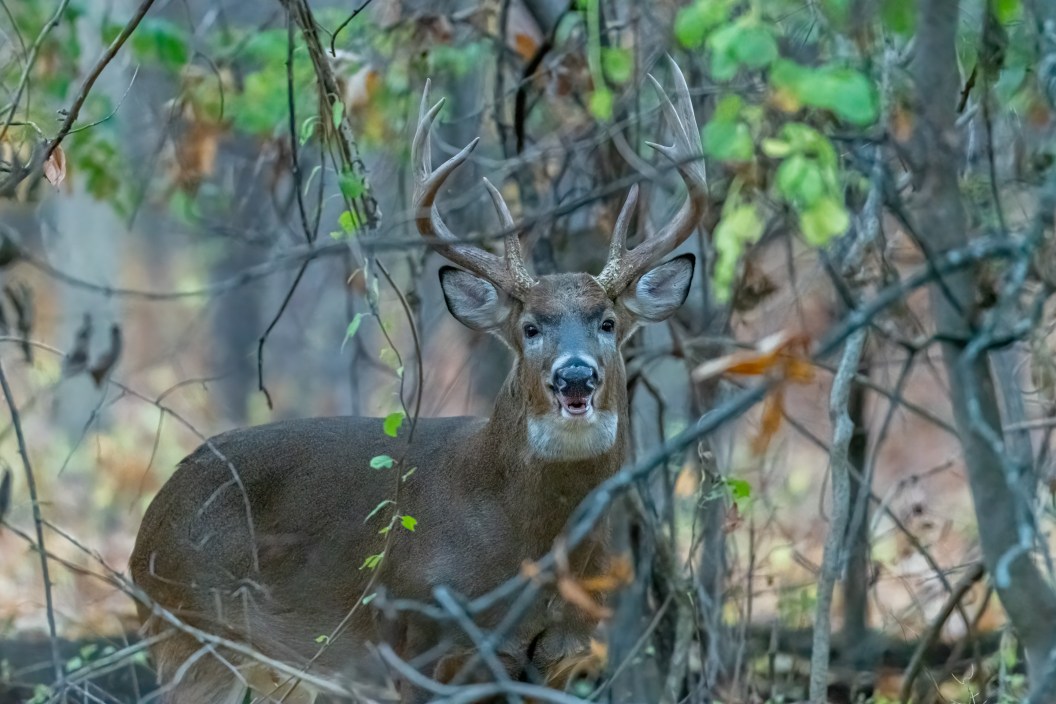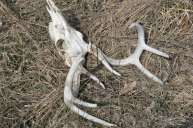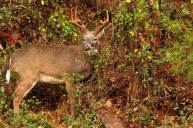When Michigan's 2023 firearm deer season officially ended in December, it did so on a low note. The reported deer harvest for the entire state was down significantly from 2022, with almost 30,000 fewer deer harvested in 2023 than in 2022.
A total of 274,021 deer were harvested in 2023, compared with the 303,082 harvested in 2022. The decrease was most significant in the Upper Peninsula, where 26% fewer deer were harvested in 2023 than in 2022. This is in comparison to the northern Lower Peninsula, which had a 16% decrease, and the southern Lower Peninsula, which had a 7% decrease.
The southern portion of the state on the whole had the highest deer harvest totals, which comes as no surprise. Milder winters and abundant food from agriculture fields have long supported a higher density of deer in southern Michigan than in the northern part of the state. Northern Michigan experiences extremely cold and snowy winters and has more predators, such as wolves, which limits deer populations.
Why Michigan Is Seeing Low Deer Harvest Numbers
The Michigan Department of Natural Resources believes that the low deer harvest numbers could be tied to the fact that there are also fewer and fewer hunters every year. A 2021 Deer Harvest Survey reported a 3.7% decrease in hunters purchasing licenses in the state from 2020 to 2021, and a 2022 Deer Hunting Season Recap saw a further 1% decline in hunters purchasing licenses.
It's a trend that's being seen around the country, driven largely by a demographic change. According to Lincoln Larson, a professor at North Carolina State University, baby boomers make up a third of all U.S. hunters. This generation is aging out of hunting, however, and younger generations aren't picking up guns. Urbanization and the increasing use of technology have deterred young adults from learning to hunt.
Another reason could also be a reluctance to shoot antlerless deer, defined as a deer without antlers or antlers that extend less than 3 inches above the skull. This seems to be supported by harvest numbers: In 2022, 131,034 antlerless deer were harvested, versus 118,305 antlerless deer in 2023.
When many people go deer hunting, they're hoping to bring home a trophy buck, not a doe. Furthermore, the Upper Peninsula does not have an antlerless firearm season, which could in part explain the lower harvest numbers in that part of the state.
Lastly, it could be a fluke in the data. Deer reporting only became mandatory in Michigan in 2022, meaning that there are only two deer seasons' worth of data to base research on. It may be that 2023 isn't a low year, but that 2022 was a particularly prolific deer harvest year. Until more seasons' harvest numbers are added to the data, it is difficult to ascertain any trends.
What Do the Low Numbers Mean for the Future?
Lower harvest numbers mean a higher population of deer. While the Michigan deer population is healthy across most of the state, years of declining harvest numbers could lead to overpopulation and more deer with chronic wasting disease and bovine tuberculosis.
To prevent this, the overall management of deer populations in Michigan may need to be examined. Chad Stewart, the deer biologist at Michigan Department of Natural Resources, told Fox 17 West Michigan, "We feel that we need to really try to reevaluate some of our current deer management strategies."
In particular, Stewart stresses that Michigan hunters need to shoot more does than bucks to help keep population numbers under control.
On Jan. 20, Michigan released its Deer Management Initiative, a crowdsourced campaign to address the declining deer harvest numbers. It is currently seeking committee members for the initiative.
Additionally, Stewart told Fox 17 West Michigan that other population management policies could change to encourage people to harvest more deer, particularly antlerless deer. While nothing is set in stone yet, the policy changes could affect the cost of hunting licenses, buck restrictions, and the length of the firearm season.




